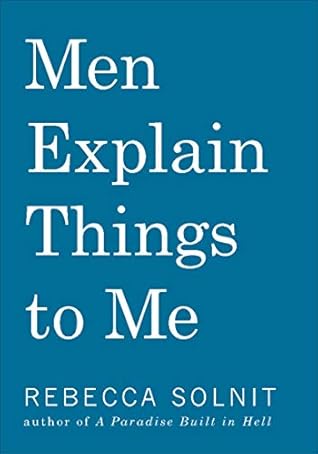More on this book
Community
Kindle Notes & Highlights
Despair is a form of certainty, certainty that the future will be a lot like the present or will decline from it; despair is a confident memory of the future, in Gonzalez’s resonant phrase. Optimism is similarly confident about what will happen. Both are grounds for not acting. Hope can be the knowledge that we don’t have that memory and that reality doesn’t necessarily match our plans; hope like creative ability can come from what the Romantic poet John Keats called Negative Capability.
Chip Ward speaks of “the tyranny of the quantifiable,” of the way what can be measured almost always takes precedence over what cannot: private profit over public good; speed and efficiency over enjoyment and quality; the utilitarian over the mysteries and meanings that are of greater use to our survival and to more than our survival, to lives that have some purpose and value that survive beyond us to make a civilization worth having.
Hysteria derives from the Greek word for “uterus,”
The implication that women as a category are unreliable and that false rape charges are the real issue is used to silence individual women and to avoid discussing sexual violence, and to make out men as the principal victims. The framework is reminiscent of that attached to voter fraud, a crime so rare in the United States that it appears to have had no significant impact on election outcomes in a very long time. Nevertheless, claims by conservatives that such fraud is widespread have in recent years been used to disenfranchise the kinds of people—poor, non-white, students—likely to vote
...more
It’s the way some men say, “I’m not the problem” or that they shifted the conversation from actual corpses and victims as well as perpetrators to protecting the comfort level of bystander males. An exasperated woman remarked to me, “What do they want—a cookie for not hitting, raping, or threatening women?” Women are afraid of being raped and murdered all the time and sometimes that’s more important to talk about than protecting male comfort levels. Or as someone named Jenny Chiu tweeted, “Sure #NotAllMen are misogynists and rapists. That’s not the point. The point is that #YesAllWomen live in
...more
Rape culture is an environment in which rape is prevalent and in which sexual violence against women is normalized and excused in the media and popular culture. Rape culture is perpetuated through the use of misogynistic language, the objectification of women’s bodies, and the glamorization of sexual violence, thereby creating a society that disregards women’s rights and safety. Rape culture affects every woman. Most women and girls limit their behavior because of the existence of rape. Most women and girls live in fear of rape. Men, in general, do not. That’s how rape functions as a powerful
...more
Six years ago, when I sat down and wrote the essay “Men Explain Things to Me,” here’s what surprised me: though I began with a ridiculous example of being patronized by a man, I ended with rapes and murders. We tend to treat violence and the abuse of power as though they fit into airtight categories: harassment, intimidation, threat, battery, rape, murder. But I realize now that what I was saying is: it’s a slippery slope. That’s why we need to address that slope, rather than compartmentalizing the varieties of misogyny and dealing with each separately. Doing so has meant fragmenting the
...more
That so much change has been made in four or five decades is amazing; that everything is not permanently, definitively, irrevocably changed is not a sign of failure. A woman goes walking down a thousand-mile road. Twenty minutes after she steps forth, they proclaim that she still has nine hundred ninety-nine miles to go and will never get anywhere.
You can abolish the reproductive rights women gained in 1973, with Roe v. Wade, when the Supreme Court legalized abortion—or rather ruled that women had a right to privacy over their own bodies that precluded the banning of abortion. But you can’t so easily abolish the idea that women have certain inalienable rights.
Salon writer Amanda Marcotte notes, “Incidentally, if you Google ‘female careerism,’ you get a bunch of links, but if you Google ‘male careerism,’ Google asks if you really meant ‘male careers’ or even ‘mahle careers.’ ‘Careerism’—the pathological need to have paid employment—is an affliction that only affects women, apparently.”


